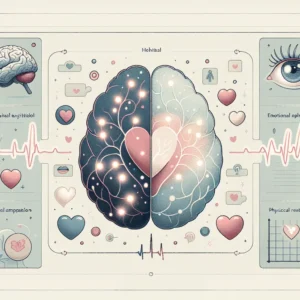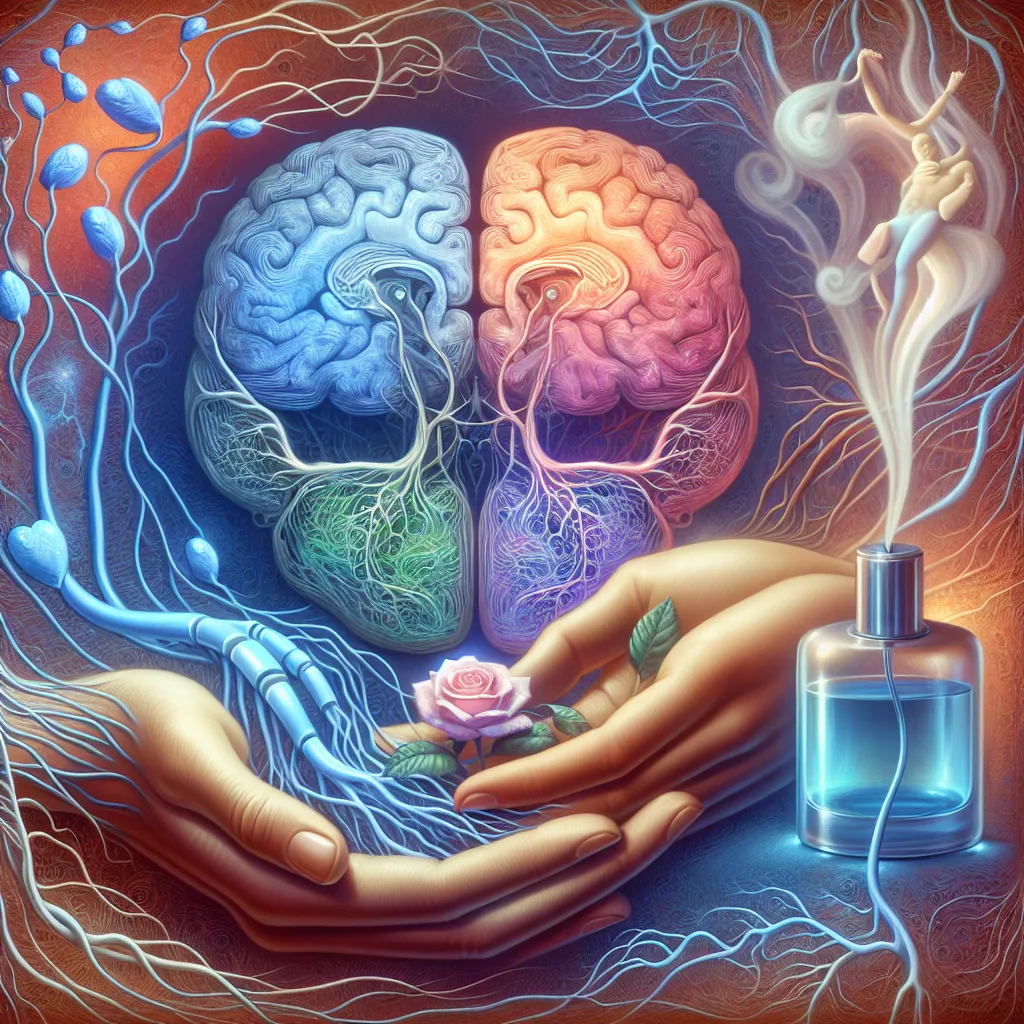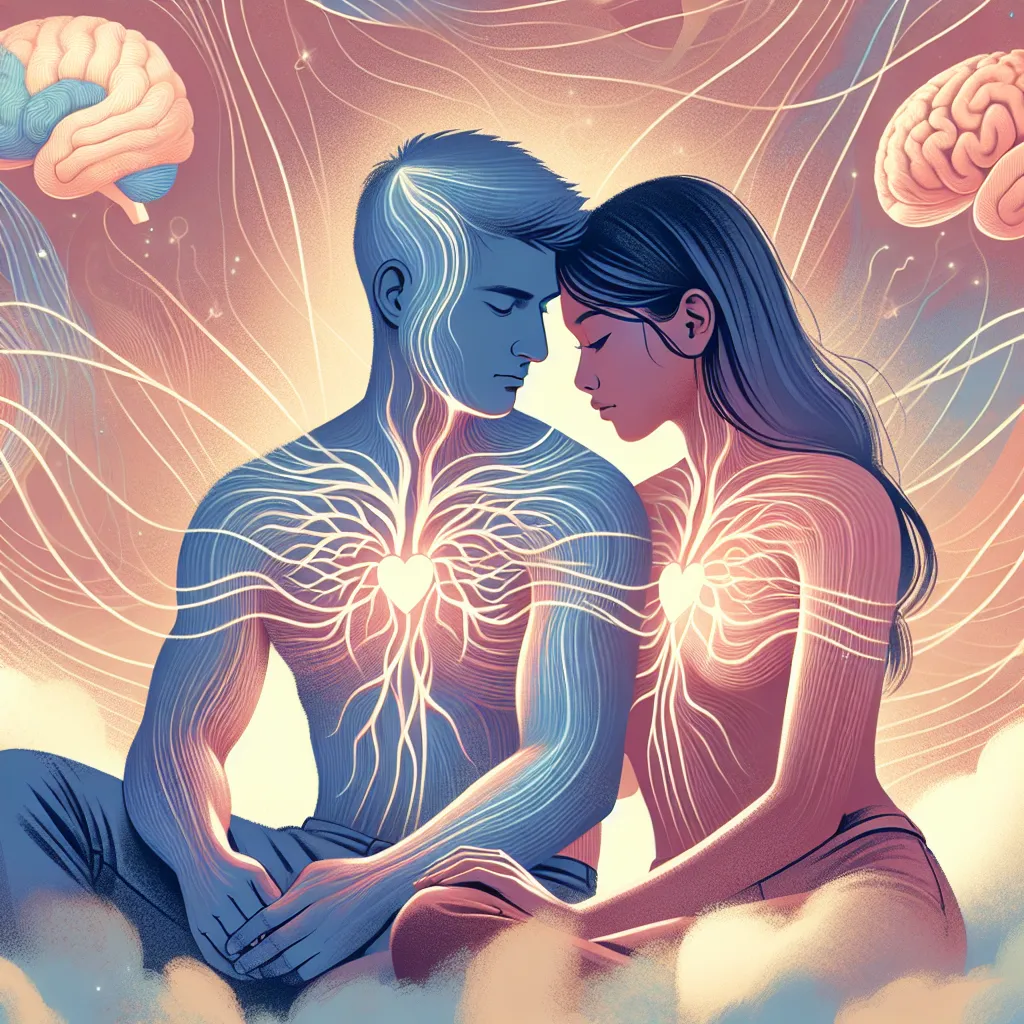Hello, relationship seekers!
Today, we’re diving deep into an intriguing question about relationships: “How does a racing heartbeat reveal the brain’s excitement during infidelity?” An unconventional query, it combines elements of psychology, biology, and emotional intricacies.
The Direct Answer
Your heartbeat can indeed signal your brain’s excitement during infidelity. This physiological response is a part of the body’s fight or flight mechanism, which is triggered by adrenaline. When a person is involved in an act of infidelity, the thrill and fear of getting caught can stimulate adrenaline production, leading to a racing heartbeat. However, it’s important to note that this isn’t a definitive sign of infidelity – it can also occur in various other emotional or stressful situations.
Now, let’s explore the extensive evidence and details that support this answer:
1. The Connection between Heart Rate and Emotions
Our heart rate is closely tied to our emotions. When we experience intense feelings, our autonomic nervous system responds, causing physiological changes like a racing heartbeat.
A. The Autonomic Nervous System
The autonomic nervous system, which controls involuntary bodily functions like heartbeat, is divided into two branches: the sympathetic and parasympathetic nervous systems.
– Expert Perspectives: According to Dr. Robert Thayer, a psychologist at California State University, the sympathetic nervous system is activated during times of stress or excitement, causing an increase in heart rate.
– Psychological Research: A study published in “Philosophical Transactions of the Royal Society B” confirms that our emotional state can influence our heart rate.
– Real-World Examples: Many people report experiencing a faster heartbeat during intense emotional situations, such as a first date, a job interview, or a thrilling movie scene.
B. Adrenaline and Heart Rate
When the brain perceives a situation as thrilling or stressful, it releases adrenaline into the bloodstream.
– Historical Context: Adrenaline, also known as epinephrine, was first isolated and identified in the late 19th century. It has been studied extensively ever since for its key role in our body’s response to stress.
– Common Challenges: It’s hard to control adrenaline release as it’s an automatic response by the brain to perceived danger or excitement.
– Practical Applications: Understanding the adrenaline-heart rate connection can help individuals better manage their stress levels and emotional responses.
C. Infidelity and Heart Rate
The act of infidelity can trigger a strong adrenaline response, leading to a racing heartbeat.
– Expert Perspectives: Psychotherapist M. Gary Neuman states that infidelity can be thrilling and anxiety-inducing at the same time, causing a surge in adrenaline.
– Psychological Research: A study in the “Journal of Marital and Family Therapy” found that individuals engaged in infidelity showed physiological symptoms including increased heart rate.
– Real-World Examples: People who have confessed to infidelity often describe experiencing a rush or a thrill, accompanied by a racing heartbeat.
2. Distinguishing Excitement from Guilt
While a racing heartbeat can indicate excitement, it’s crucial to distinguish this from feelings of guilt or anxiety that can also accompany infidelity.
A. The Role of Guilt
Guilt can also cause increased heart rate.
1. Physiological Response to Guilt: Guilt, a powerful emotion, can trigger a stress response in the body, manifesting as a racing heartbeat.
2. Guilt and Infidelity: Infidelity often leads to feelings of guilt, which can cause physiological changes.
3. Guilt Versus Excitement: It can be challenging to differentiate between the physiological responses to guilt and excitement, as both can cause an increased heart rate.
B. Anxiety and Heart Rate
Anxiety is another emotion that can cause a racing heartbeat during infidelity.
– Expert Perspectives: According to Dr. Cynthia Thaik, a Harvard-trained cardiologist, anxiety can stimulate the body’s fight or flight response, resulting in a racing heart.
– Psychological Research: A study published in “Behaviour Research and Therapy” found a clear link between anxiety and increased heart rate.
– Real-World Examples: Anxiety is a common emotion experienced during acts of infidelity, due to the fear of getting caught or damaging the relationship.
C. Disentangling Emotional Responses
While a racing heartbeat can signify excitement during infidelity, it’s crucial to remember that this physiological response can also be triggered by guilt or anxiety.
3. The Implications of a Racing Heartbeat
While a racing heartbeat can indicate the brain’s excitement during infidelity, it’s important to understand the broader implications of this phenomenon.
A. Not a Definitive Sign of Infidelity
A racing heartbeat isn’t a definitive indication of infidelity.
– Expert Perspectives: Dr. Helen Fisher, a biological anthropologist, states that while a racing heart can be a response to the thrill of infidelity, it’s not an exclusive sign as it can occur in many other situations.
– Psychological Research: Research in the field of psychophysiology confirms that heart rate can increase due to a variety of emotions, not just excitement or guilt associated with infidelity.
– Practical Applications: It’s unwise to jump to conclusions about infidelity based solely on a partner’s racing heartbeat.
B. Physical Health Risks
A consistently high heart rate can pose risks to physical health.
– Expert Perspectives: Cardiologists warn that a consistently high heart rate, regardless of the cause, can increase the risk of heart disease.
– Psychological Research: Chronic stress, including the emotional strain of infidelity, can have long-term effects on heart health, as confirmed by research published in the “Journal of the American Heart Association”.
– Real-World Examples: There are numerous documented cases of people suffering from heart-related issues due to chronic emotional stress.
C. Emotional Health Risks
The emotional upheaval associated with infidelity can also lead to mental health issues.
– Expert Perspectives: Psychologists warn that individuals involved in infidelity can suffer from anxiety, guilt, and other mental health issues.
– Psychological Research: A study in the “Journal of Social and Personal Relationships” found that infidelity can lead to substantial emotional distress for all parties involved.
– Real-World Examples: Many individuals involved in infidelity report experiencing emotional turmoil, highlighting the need for psychological support during this time.
Conclusion: The Definitive Answer
Based on all the evidence we’ve examined:
– Connection Between Heart Rate and Emotions: Emotions, including the excitement experienced during infidelity, can cause a racing heartbeat due to activation of the autonomic nervous system.
– Role of Adrenaline: The thrill and fear associated with infidelity can trigger adrenaline release, leading to an increased heart rate.
– Not a Definitive Sign of Infidelity: While a racing heartbeat can occur during infidelity, it’s not a definitive sign as it can be triggered by various other emotional states.
So, how does a racing heartbeat reveal the brain’s excitement during infidelity? It serves as a physiological response to the adrenaline rush triggered by the thrill and fear of infidelity. However, it’s important to remember that a racing heartbeat can be caused by other emotions as well, and therefore, it should not be used as a definitive sign of infidelity.
Understanding the connection between our emotions and physical responses can offer valuable insights into our relationships and personal behavior. However, it’s crucial to approach such delicate topics with empathy, understanding, and respect for all involved.



